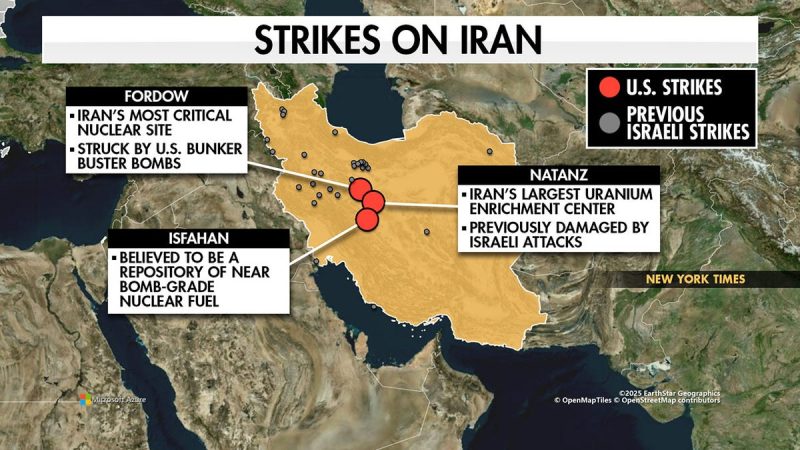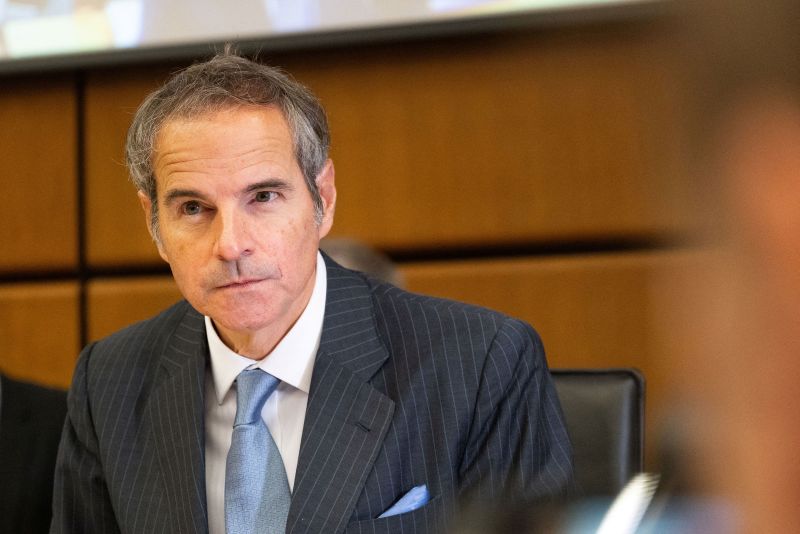
A leaked Defense Intelligence Agency report is casting doubt on President Donald Trump’s claim that recent U.S. airstrikes ‘completely and totally obliterated’ three Iranian nuclear facilities, instead concluding the mission only set back Iran’s program by several months.
The report, published by CNN and The New York Times, comes just days after Trump approved the strikes amid escalating tensions between Israel and Iran. In a national address immediately following the operation, Trump declared the sites ‘completely and totally obliterated.’
While members of the Trump administration have waged a new war to discredit the initial report from the Pentagon’s Defense Intelligence Agency, multiple experts told Fox News Digital that there is too little information available right now to accurately determine how much damage the strikes did.
Piecing together a thorough intelligence assessment is complex and time-consuming, they said.
Dan Shapiro, who previously served as the deputy assistant secretary of Defense for the Middle East and the U.S. ambassador to Israel, said he didn’t put a lot of stock in both overly pessimistic or overly optimistic assessments that emerged quickly, and said that the initial assessment from DIA was likely only based on satellite imagery.
‘That’s one piece of the puzzle of how you would really make this assessment,’ Shapiro, now a senior fellow at the Atlantic Council, told Fox News Digital. ‘You’d really want to have to test all the other streams of intelligence, from signals intelligence, human intelligence, other forms of monitoring the site, potentially visits by International Atomic Energy Agency inspectors, potentially visits by other people. So that’s going to take days to weeks to get a real assessment.’
‘But I think it’s likely that if the munitions performed as expected, that significant damage was done, and would set back the program significantly,’ Shapiro said.
Gen. Dan Caine, Chairman of the Joint Chiefs of Staff, said Sunday that initial battle damage assessments suggested ‘all three sites sustained extremely severe damage and destruction,’ but he acknowledged that a final assessment would ‘take some time.’
Still, media reports based on the DIA report painted a different picture, and CNN’s reporting on the initial report said that Iran’s stash of enriched uranium was not destroyed in the strikes, citing seven people who had been briefed on the report. The findings were based on a battle damage assessment from U.S. Central Command, according to CNN.
Other members of the Trump administration, including Secretary of Defense Pete Hegseth, have subsequently pushed back on the DIA report’s conclusions, claiming that the report was labeled ‘low confidence.’
The term is commonly used when labeling initial assessments, and means that conclusions are based on limited data, according to experts.
Retired Navy Rear Adm. Mark Montgomery, who previously served as the director for transnational threats at the National Security Council for former President Bill Clinton, said the low confidence description is commonly used in early assessments.
‘Low confidence means the analyst is not sure of the accuracy of their assessment,’ said Montgomery, now a senior fellow at the Washington think tank the Foundation for the Defense of Democracies. ‘This is frequent when with a Quick Look 24-hour assessment like this one.’
Montgomery’s colleague, Craig Singleton, also a senior fellow with the Foundation for Defense of Democracies, said that the low confidence label is used in cases with thin evidence and serves as a warning to policy-makers to seek additional information.
‘Most importantly, low confidence assessments are usually issued when key facts have yet to be verified, which certainly applies in this case,’ Singleton said.
Rob Greenway, former deputy assistant to the president on Trump’s National Security Council, told Fox News Digital that it will take one or two months to get a more thorough assessment with higher confidence.
Greenway also said that the strikes were designed to create damage underground, which will complicate the assessment of damage, because it is not immediately available and will require multiple sources of intelligence, such as signals or human intelligence, to draw conclusions.
Israel had also previously conducted strikes targeting the sites, adding to the web of analysis that must be evaluated, Greenway said.
‘Each of these are one piece of a much larger puzzle, and you’re trying to gauge the ultimate effect of the entirety of the puzzle, not just one particular strike,’ said Greenway, now the director of the Allison Center for National Security at The Heritage Foundation. ‘All of that means it’s going to take time in order to do it.’
Even so, Greenway said that the amount of ordnance dropped on the sites – including more than 14 30,000-lb. bombs – means that the targeted facilities have been so heavily compromised they are no longer serviceable.
‘We were putting twice the amount of ordnance required to achieve the desired effect, just to make sure that we didn’t have to go back,’ Greenway said.
‘There’s virtually no mathematical probability in which either facility can be used again by Iran for the intended purpose, if at all, which again means that everything now is within Israel’s capability to strike if that’s required,’ Greenway said.
And Michael Allen, a former National Security Council senior director in the George W. Bush administration, said that even though a final judgment from the intelligence community won’t be ready soon, the intelligence portrait will become ‘richer’ in the coming days.
‘Stuff is pouring in, and we’re out there collecting it, and they’re trying to hustle it to the White House as soon as possible,’ Allen, now the managing director of advisory firm Beacon Global Strategies, told Fox News Digital.
White House press secretary Karoline Leavitt told reporters that very few people had access to this report, and those who leaked it to the media will be held accountable as the FBI investigates who shared the document with the press.
‘That person was irresponsible with it,’ Leavitt told reporters Thursday. ‘And we need to get to the bottom of it. And we need to strengthen that process to protect our national security and protect the American public.’




















